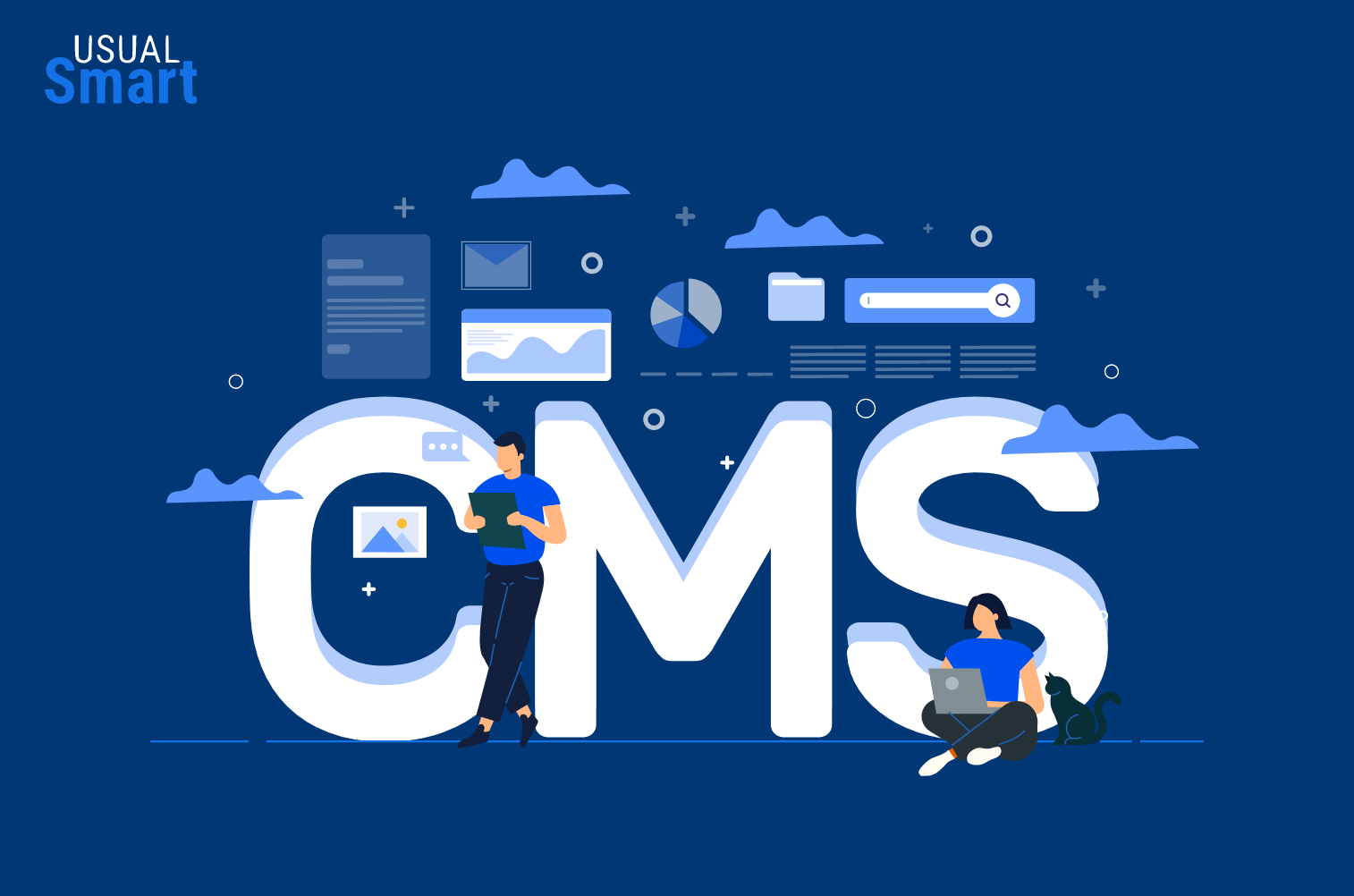5 Reasons You Must Use A CMS For Your Businesses

Posted by: Pooja / Posted on: February 14, 2022
Technology is on a boom for the past few decades. What seemed an impossible feat couple of years back, is now available at your fingertips. The Internet has surpassed expectations of its users and is continuously peeling layers by layers of new technologies and modes of presenting content. Here, the content can be delivered using multiple Content Management Systems that have revamped the information presented online in a preferable manner. This has given the users and businesses wings to develop a codeless website that is customized as per requirement and therefore, several CMS have cropped up tailored to the audience’s needs.
Fundamentally, there are three types of CMS viz. traditional CMS, DXP (Digital Experience Platform), and Headless CMS.
Traditional CMS is something that is tightly coupled to one website, and here everything is fit into a box. For instance, the database, website, and CMS are all closely knit together in a box connected with Hybrid Headless APIs that help other systems to access the data in the box. Some of the most popular traditional CMS are WordPress, Wix, Drupal, Kentico, Shopify, and Squarespace.
As for the Digital Experience Platform, it is evident that in Traditional CMS elements were put in a box, in DXP more features are incorporated in the same box e.g. personalization, marketing automation, analytics, and other features connected with Hybrid Headless APIs just like in traditional CMS. A few DXPs are Adobe AEM, Sitecore, Episerver, and Crownpeak.
And finally comes the Headless CMS that complies with Content as a Service, where content is separate from the output in an API-driven cloud-based CMS. Examples of Headless CMS are Agility CMS, Contentful, and Prismic. In Headless CMS content is decoupled from the presentation layer “head.” Content placed in a headless CMS is delivered via APIs for display across different devices.
CMSs have a proven record of spiking the ROI and therefore, here we have a couple of reasons why you must adhere to a CMS in your business.
Some benefits of owning a CMS for your business strategy:
- Customization Options: With most of the CMS available in the market today there is a broad array of functionalities that can be altered and tweaked to emerge as a market winner. Easily adjust the look, feel, deliverables, and layout by choosing your favourite template with the vast range of CMSs to choose from. The functionality of available CMSs can be extended by using plugins for different features like payment gateways, shopping carts, image refinement, spam protection, and more. These do not require knowledge of programming and can be easily deployed as per targeted usability.
- Content Scheduling: Content calendars are amongst the most popular mode of content planning before publishing. This caters to content strategy and being prepared with what content to publish at different steps of the deployment. If the content is prepared by a stakeholder and published by another it creates a lot of chaos in the organization. This is where content scheduling in a CMS comes in handy. With CMS, schedule the content to be posted as per a time-plan which may vary from weeks or even months in advance of posting.
- Keeps Content Fresh: Since the update in content can be done seamlessly it is possible to create content that is up to date with state-of-the-art voice. The content developed in CMS is modular and it is easy to alter content without shuddering the entire structure. Create numerous pages targeting multiple users in a secure environment that resonates with the latest SEO practices. With the fresh content, the UI is updated regularly which determines a better UX as well.
- For All Business Sizes: Most CMSs offer scalability, simplicity, flexibility, and cost-effective solutions for small, medium businesses to large enterprises. It helps place content on the website that attracts more clients and prospects for the businesses. CMS works for upgrading the content presented in a dynamic environment to control, manage and structure in a real-time environment. There is no requirement for administrators and developers to update content, even a basic user without no knowledge of coding can do it.
- Improves Collaboration and Sharing: CMSs are prevalent for workflows, data automation, and process management that help in communication in a contributing environment. Here, people not geographically in the same location can also handle the content in unison. While collaborating, it is easy to authorize the users that can access different platforms of the CMS. All these features make a CMS easy to use with download capabilities, update content and delete expired pages.
This was our insight into how a CMS caters to various functions and effects 360-degree content management. If you feel you could benefit from using a CRM in your business contact us now.